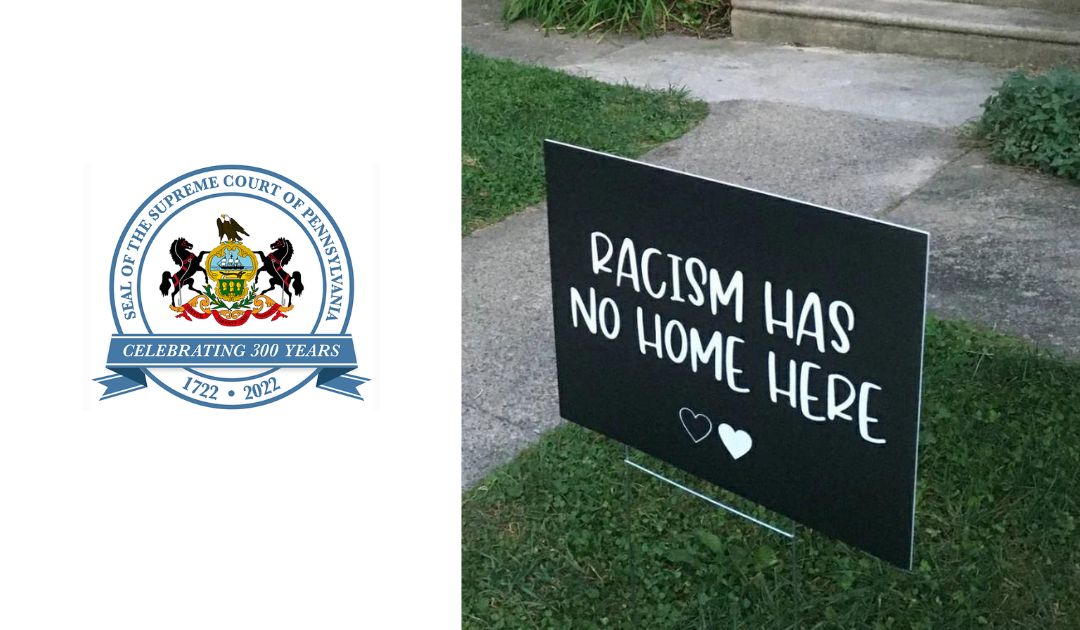Drs. Simon and Toby Galapo of Abington Township are appellants in a legal battle that has made its way to the Pennsylvania Supreme Court, the Pennsylvania Record reported today.
On Tuesday, August 20, four state Supreme Court justices reversed a trial court injunction issued by the Montgomery County Court of Common Pleas that prevented the Galapo family from erecting lawn signs in their backyard which protested hostile and antisemitic behavior they allegedly experienced from their neighbors.
The Galapos, who are Jewish, live adjacent to a property owned by Frederick and Denise Oberholzer, the case’s appellees. According to the story, “a brewing feud” among them first surfaced in November 2014 over landscaping issues and peaked when Mrs. Oberholzer allegedly called Dr. Galapo a “f—king Jew” after being confronted about a resurveyed property line.
“This prompted the Galapos in June 2015 to erect the first of many signs primarily displaying anti-hate and anti-racist messages ‘along the back tree-line directly abutting [the Oberholzers’] property line, pointed directly at [the Oberholzers’] house, and in direct sight of [other] neighbors’ houses.’ All told, the Galapos posted 23 signs over a years-long span, during which the neighbors continued to quarrel over other minor nuisances,” Justice Kevin M. Dougherty said.
The signs said “No Place 4 Racism”, “Hitler Eichmann Racists”, “Racists: The true enemies of FREEDOM”, plus 20 additional signs, the Record said.
The Oberholzers argued via a lawsuit in the Montgomery County Court of Common Pleas that the signs were “(1) Private nuisance; (2) Intrusion upon seclusion; (3) Defamation – libel and slander; (4) Publicly placing the Oberholzers in false light; and (5) Intentional infliction of emotional distress.”
The court ordered the Galapos to move or replace the signs so that they “be positioned in such a way that they do not directly face and target [the Oberholzers’] property: The fronts of the signs (lettering, etc.) are not to be visible to [the Oberholzers] nor face in the direction of [their] home.”
The Supreme Court appeal found that the injunction violated the Pennsylvania Constitution’s Free Speech Clause.
“The fact that one purpose of the Galapos’ signs was to engage in a ‘personal protest’ against the Oberholzers does not alter this conclusion. Surely, a protest was part of the motive behind the signs. But so what? Again, Article I, Section 7 [of the Pennsylvania Constitution] ‘specifically affirms the ‘invaluable right’ to the free communication of thoughts and opinions, and the right of ‘every citizen’ to ‘speak freely’ on ‘any subject’ so long as that liberty is not abused.’ Those sweeping terms necessarily include the right to use speech as a means of (peaceful) protest,” Dougherty said.
The full story is here.
For all the latest news, follow us on Facebook or sign up for Glenside Local’s “Daily Buzz” newsletter here.

